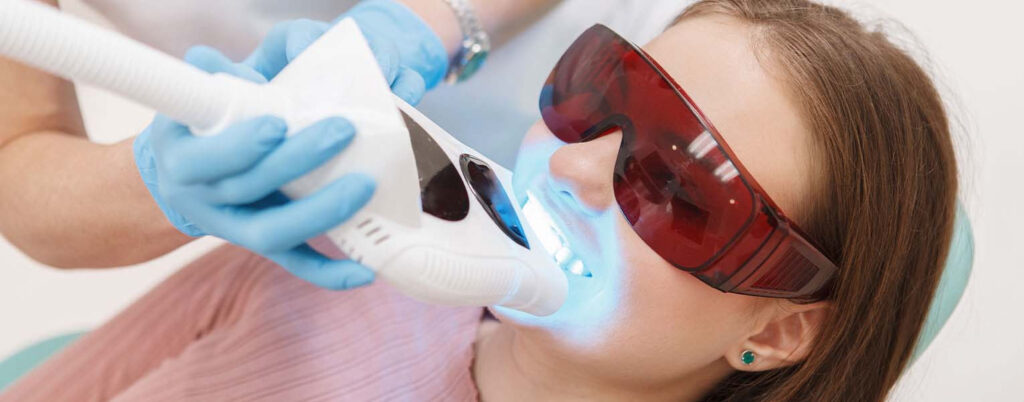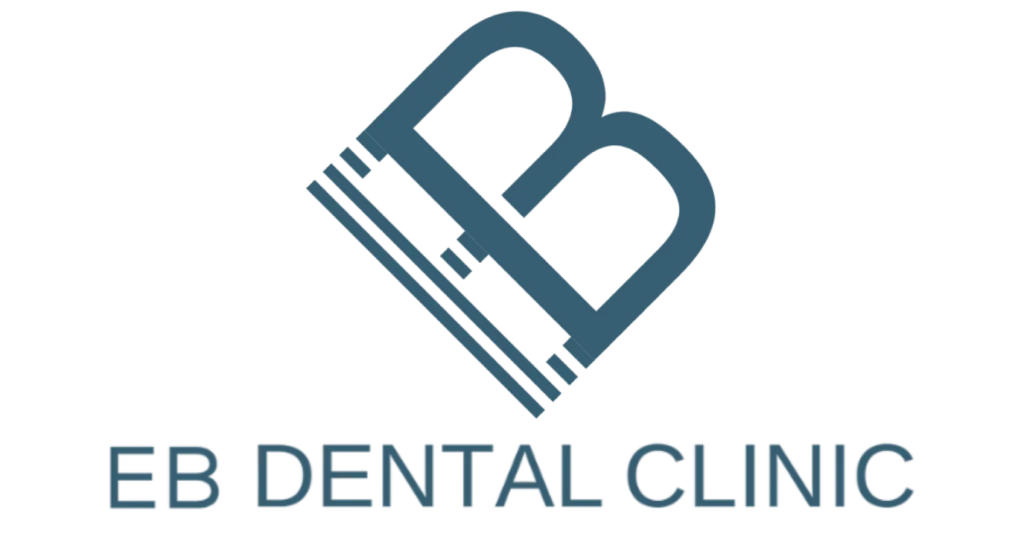Our Services
Our Contact Information
- Nisbetiye, Fecri Ebcioğlu Sk. No: 3E, Beşiktaş/İstanbul
- +90 544 152 34 34
- infodental@eb.clinic
- Monday / Saturday: 9:30 / 19:00
Biological Teeth Whitening

Biological Teeth Whitening
Biological teeth whitening is a method of enhancing the whiteness of your teeth using natural and biocompatible products. This approach aims to achieve effective results while minimizing the potential risks and side effects associated with traditional whitening treatments. It focuses on using ingredients and techniques that are gentle on your teeth and gums and align with holistic dental care principles.
What is Biological Teeth Whitening?
Biological teeth whitening is a cosmetic procedure designed to lighten the color of your teeth using natural and environmentally friendly methods. Unlike traditional whitening treatments that may use harsh chemicals or abrasive substances, biological whitening emphasizes the use of natural materials and methods that are less likely to cause irritation or sensitivity.
The appearance, position, and color of teeth are among the factors that affect social life and determine one’s smile. The color of teeth can change due to agents like tea and coffee, which are commonly consumed in daily life and contain colored substances. Therefore, biological teeth whitening can be used to enhance aesthetic appearance. Biological agents are used under the supervision of specialized dentists in a clinical setting to safely and effectively lighten the color of teeth to the desired level.
Biological teeth whitening is the process of removing colored organic and inorganic substances that settle in the porous enamel structure on the surface of the teeth using special dental whitening gels in a clinical environment.
How Does Biological Teeth Whitening Work?
1. Consultation and Evaluation:
Your dentist will assess your dental health, discuss your whitening goals, and determine if biological teeth whitening is suitable for you. They will also evaluate any existing dental issues, such as cavities or gum disease, that need to be addressed before the whitening procedure.
2. Preparation:
Before starting the whitening process, your teeth and gums are thoroughly cleaned to remove plaque or tartar. This allows the whitening agents to work effectively.
3. Application of Whitening Agents:
Biological teeth whitening typically involves the application of natural or biocompatible whitening agents. Common components used in biological whitening include:
Activated Charcoal: Known for its absorbent properties, activated charcoal can help remove surface stains and polish the teeth.
Hydrogen Peroxide or Carbamide Peroxide: These are used in lower concentrations compared to traditional whitening treatments and are combined with natural substances to enhance their effectiveness.
Plant-Based Enzymes: Enzymes derived from fruits or other natural sources can help break down stains and improve the appearance of your teeth.
4. Treatment Sessions:
Depending on the product and method used, you may need one or more treatment sessions to achieve the desired level of whiteness. Your dentist will monitor your progress and make necessary adjustments.
5. Post-Care:
After the whitening procedure, your dentist will provide guidance on maintaining your results. This includes recommendations for oral hygiene practices and tips for avoiding foods and beverages that may cause staining.
Benefits of Biological Teeth Whitening
- Natural Ingredients: Biological whitening uses natural or biocompatible agents that reduce the risk of sensitivity and irritation compared to traditional whitening methods.
- Holistic Approach: This method is compatible with holistic dental care principles that focus on overall health and well-being.
- Reduced Sensitivity: Many patients experience less sensitivity with biological whitening, making it a gentler option for those with sensitive teeth or gums.
Considerations and Limitations
- Effectiveness: While biological teeth whitening may be effective, the results can vary compared to traditional whitening treatments. Achieving the desired level of whiteness may take longer.
- Cost: Biological whitening may be more expensive than traditional whitening options due to the use of special products and techniques.
- Consultation: It is important to consult with your dentist to determine if biological whitening is right for your specific needs and to ensure it aligns with your dental health goals.
Moving Forward with Confidence
Biological teeth whitening offers a natural and gentle alternative to brighten your smile while prioritizing your overall dental health. If you are interested in exploring this option or have any questions about the procedure, please contact us . We are here to help and support you in achieving a bright, healthy smile that aligns with your values and preferences.
How is Biological Teeth Whitening Done?
First, the applicability of biological teeth whitening is determined by examination in a clinical environment. Then, the cheeks and lips are removed from the teeth with mouth openers, a protective membrane is placed on the gums and special whitening gels are applied to the teeth and the teeth whitening process is started. Teeth whitening is activated with laser application. The whiteness of the teeth is checked in a controlled manner and whitening is continued with additional sessions according to the person’s request.
What are the points to consider in the biological teeth whitening process?
During the teeth whitening process, colored products such as tea and coffee should be avoided. Because these products will cause the teeth to become colored again as the process continues. It is also possible for some people to experience tooth sensitivity during the sessions.
What You Need to Know After Biological Teeth Whitening?
There may be a change in the color of the teeth after teeth whitening, but paying attention to the foods consumed and continuing the controlled whitening with additional sessions with 6-month follow-ups makes biological teeth whitening permanent. Sensitivity may be seen in the teeth after the procedures, but this disappears within 24-48 hours.



